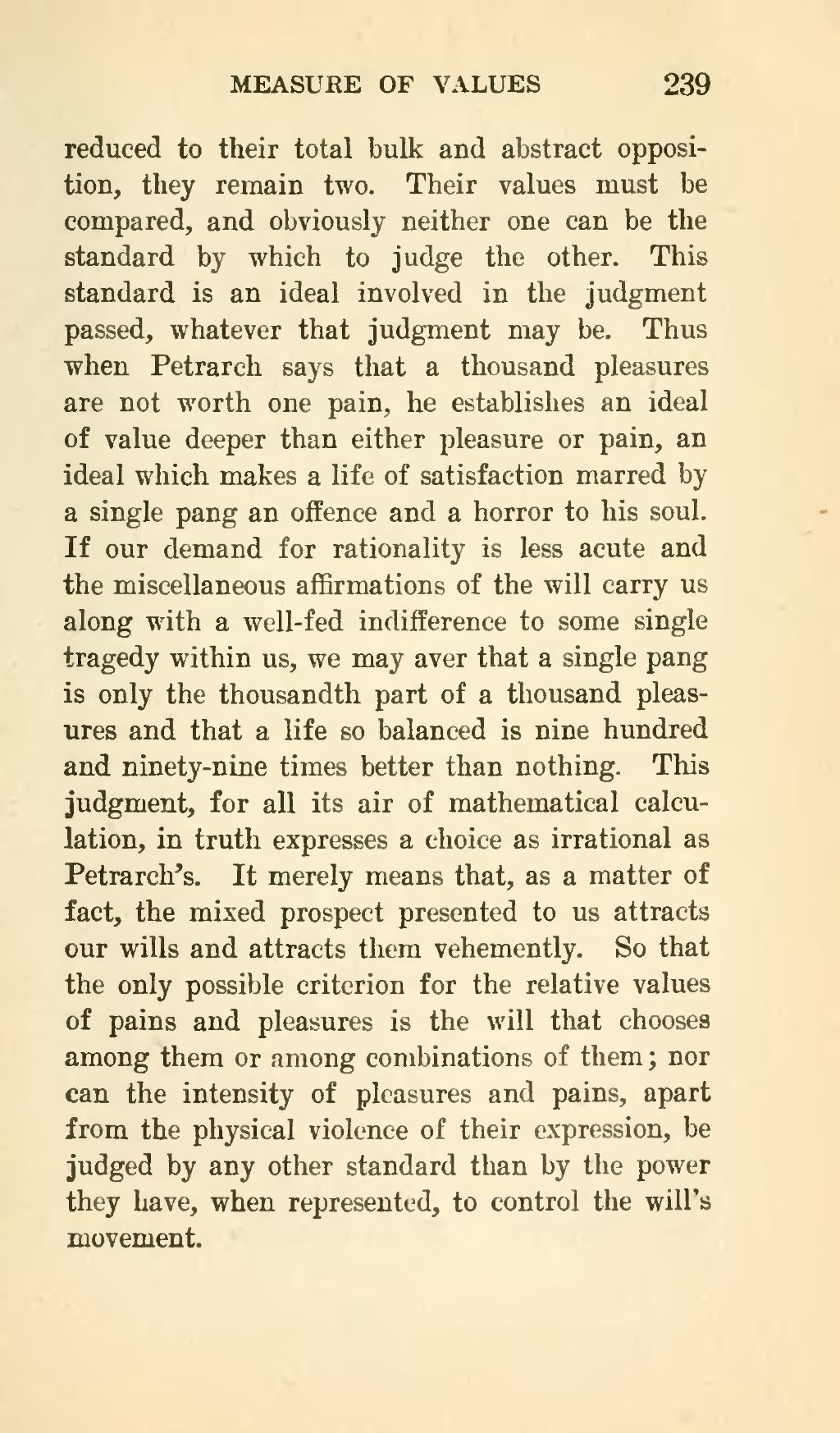reduced to their total bulk and abstract opposition, they remain two. Their values must be compared, and obviously neither one can be the standard by which to judge the other. This standard is an ideal involved in the judgment passed, whatever that judgment may be. Thus when Petrarch says that a thousand pleasures are not worth one pain, he establishes an ideal of value deeper than either pleasure or pain, an ideal which makes a life of satisfaction marred by a single pang an offence and a horror to his soul. If our demand for rationality is less acute and the miscellaneous affirmations of the will carry us along with a well-fed indifference to some single tragedy within us, we may aver that a single pang is only the thousandth part of a thousand pleasures and that a life so balanced is nine hundred and ninety-nine times better than nothing. This judgment, for all its air of mathematical calculation, in truth expresses a choice as irrational as Petrarch’s. It merely means that, as a matter of fact, the mixed prospect presented to us attracts our wills and attracts them vehemently. So that the only possible criterion for the relative values of pains and pleasures is the will that chooses among them or among combinations of them; nor can the intensity of pleasures and pains, apart from the physical violence of their expression, be judged by any other standard than by the power they have, when represented, to control the will’s movement.
